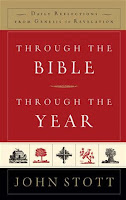Ten Commandments
The Ten Commandments may be read from many different perspectives. Some see them as a form of natural law. Why? Because the laws are violated in some form before they are codified in Exodus 20. For example, theft, adultery, murder, covetousness and the like are committed in Genesis. Even the sabbath is violated in Exodus 16:27-30 (four chapters before the law is formally given in the list of ten). These laws find their counterparts in the religions of the Ancient Near East (ANE). No society that tolerates murder, theft, adultery and the like can be viable over the generations but will collapse under its own moral anarchy.
Yet others view the Ten Commands as distinctive revelation, with no real counterpart in the ANE. This is especially true of tablet one, commands 1-4, each of which contain a rationale for compliance. The command to worship only the LORD God, to make no idols to worship in the place of this God, nor to blaspheme this God, nor to violate the sabbath of this God are distinctive in the religions of the ANE and based on the singular uniqueness of the LORD God which the rest of the Biblical narrative sets forth.
The uniqueness of the LORD God's character is the key to the rest of the commands' interpretation. The reason we do not steal is because the LORD God is generous. The reason we do not murder is because the LORD God is the author and sustainer of life. The reason we do not commit adultery is because the LORD God is faithful to his covenant with us. And so on.
The Ten Commands set forth the moral and relational implications of God's character and thus the nature of reality itself. To step outside of them is to turn our backs on the truth of God, ourselves and God's world.

No comments:
Post a Comment